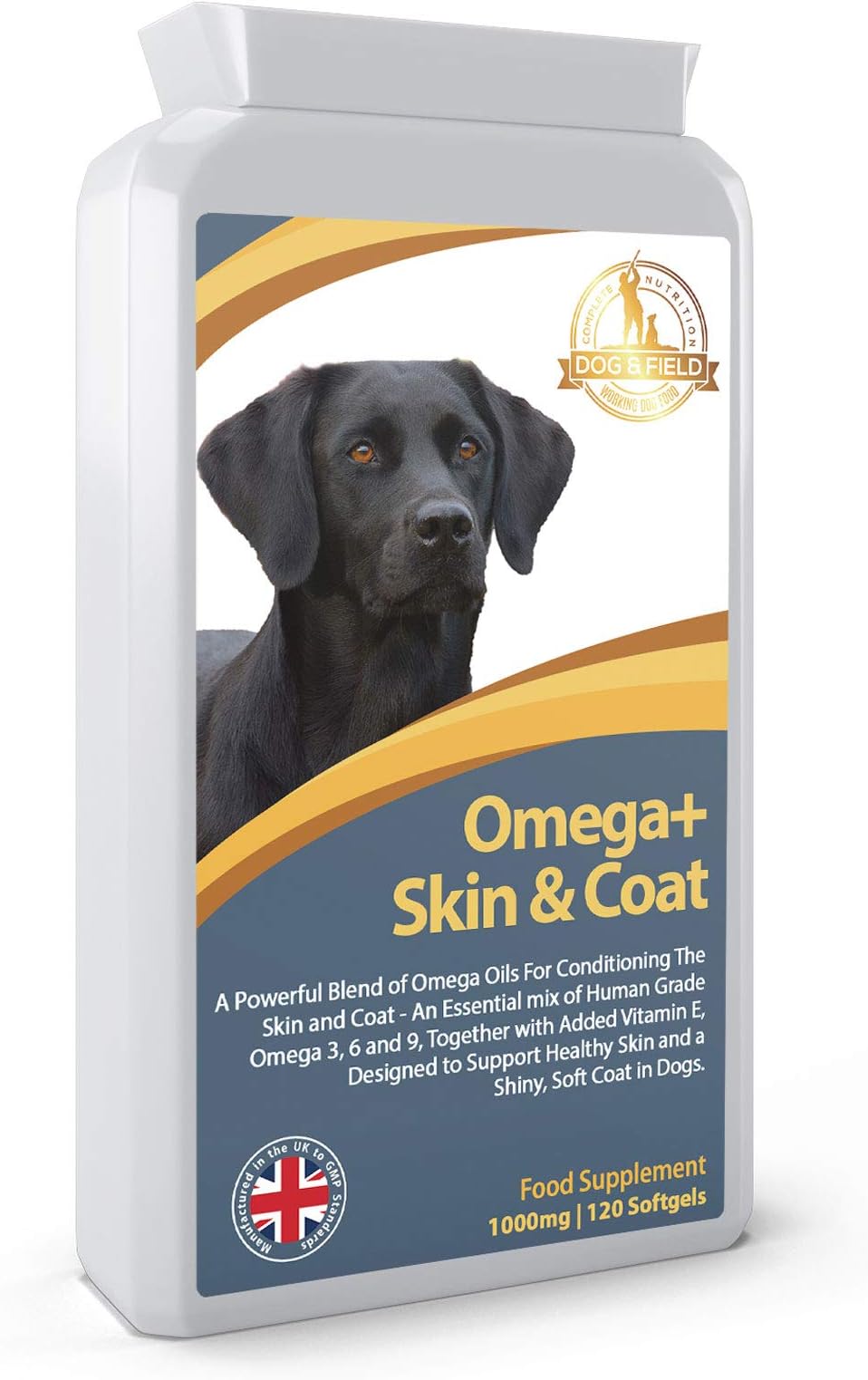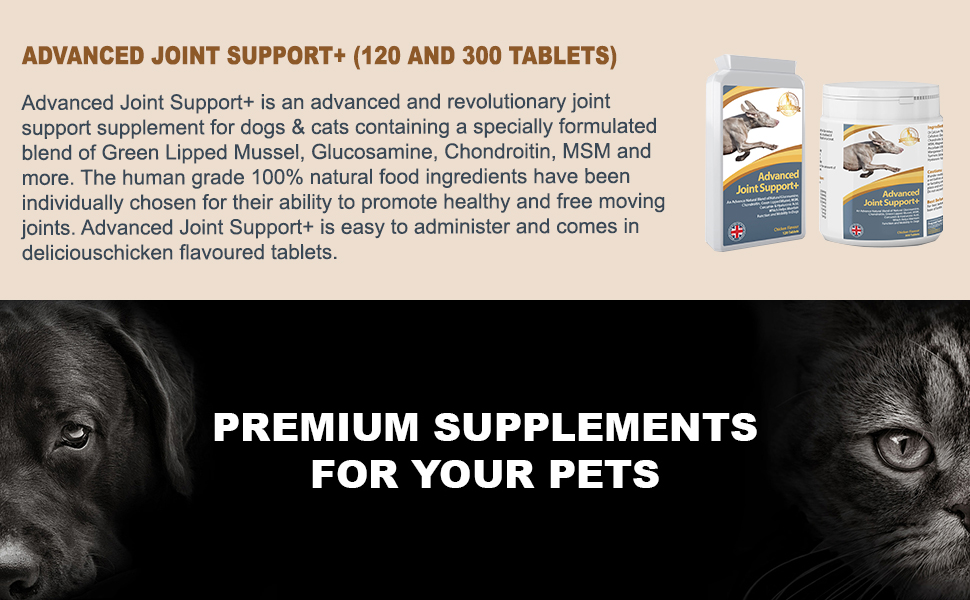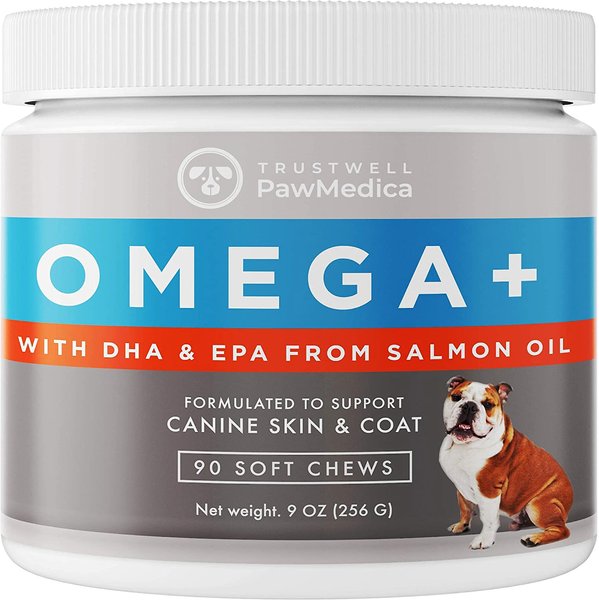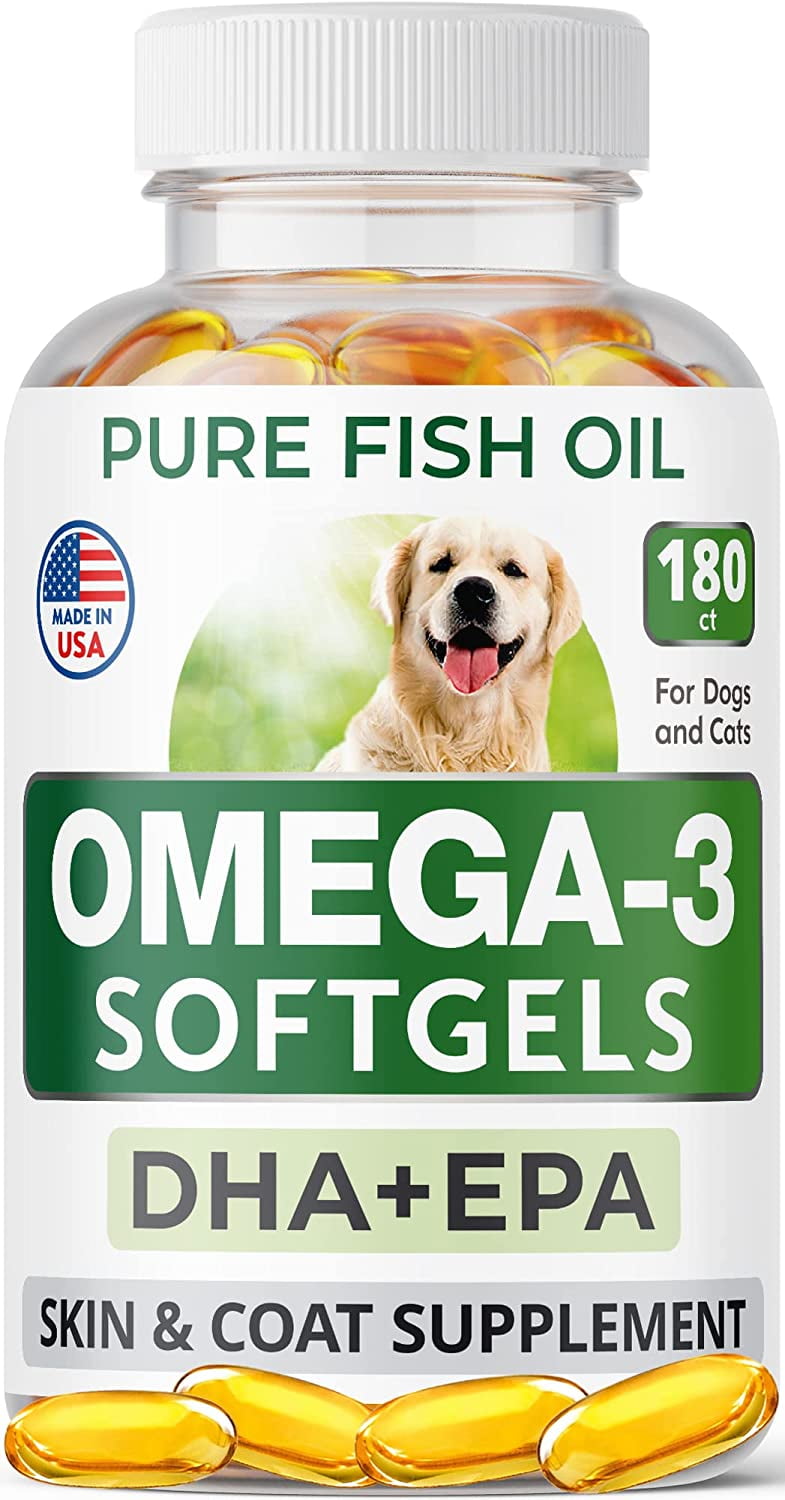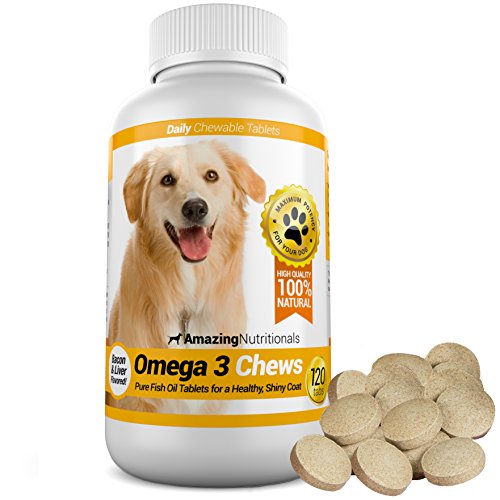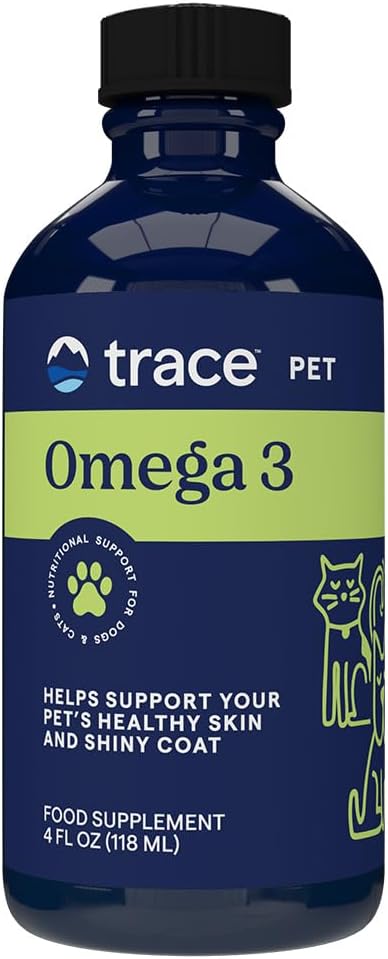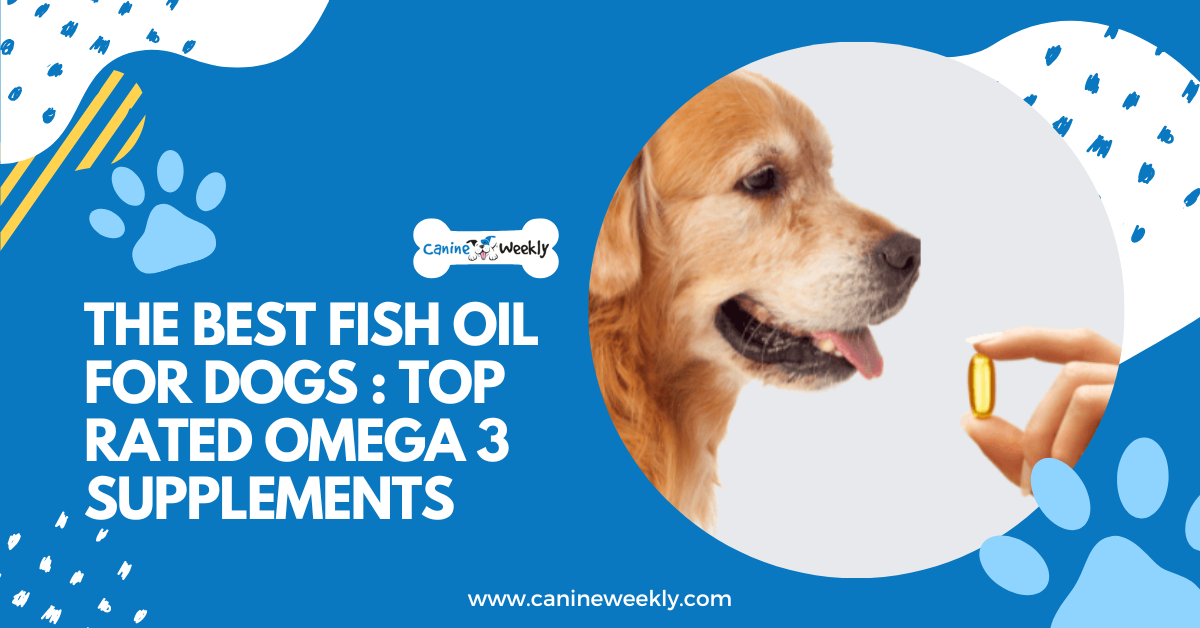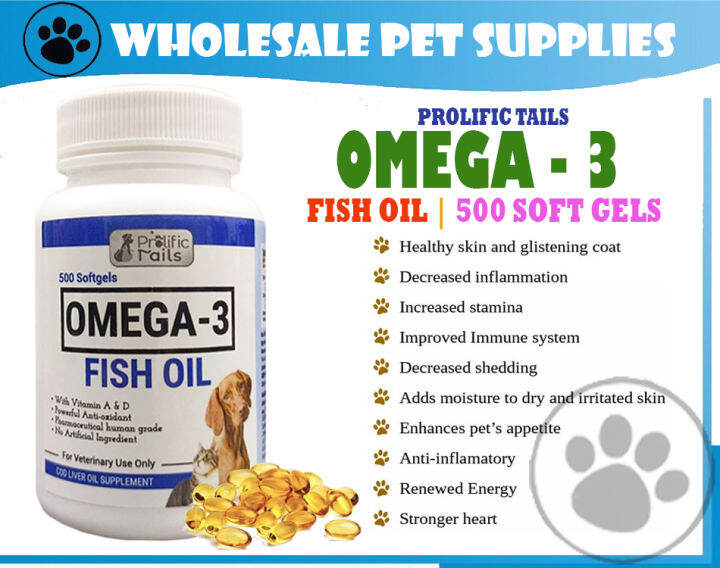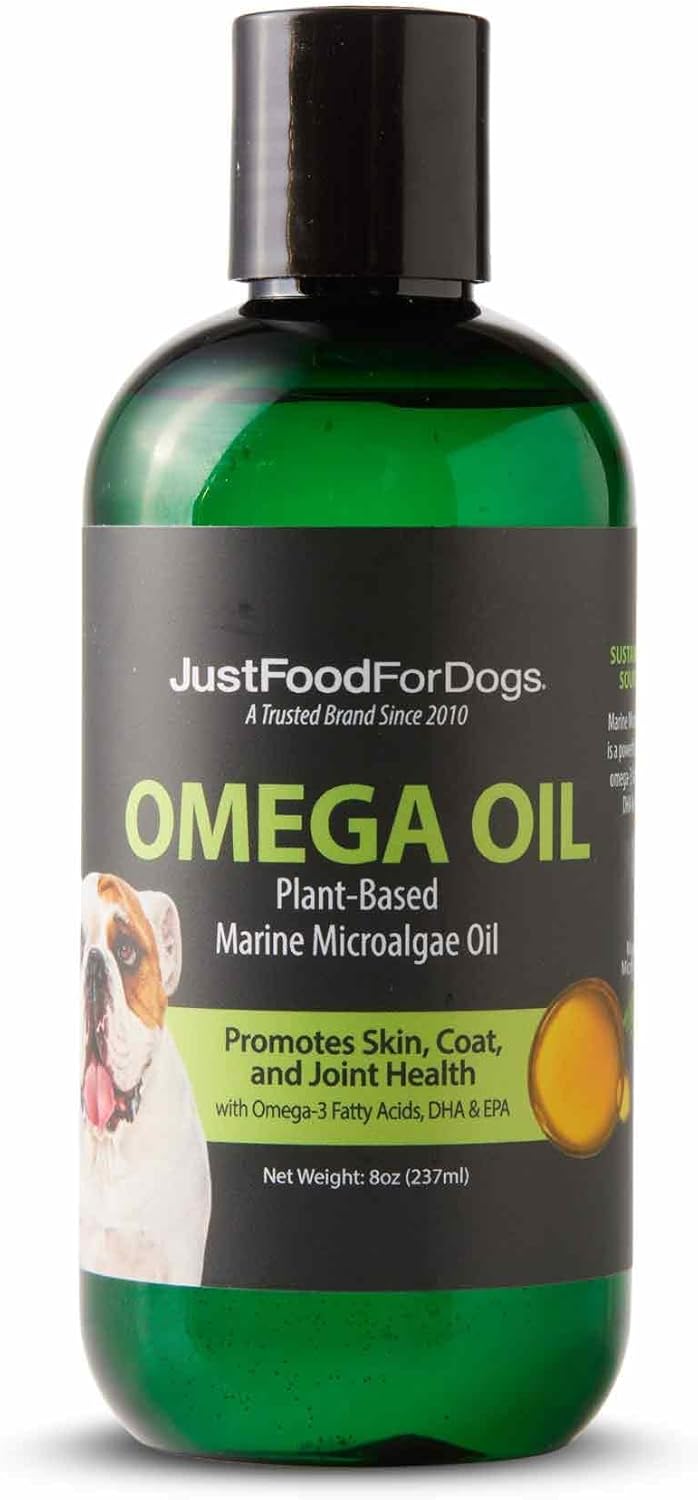Best Omega 3 Supplement For Dogs
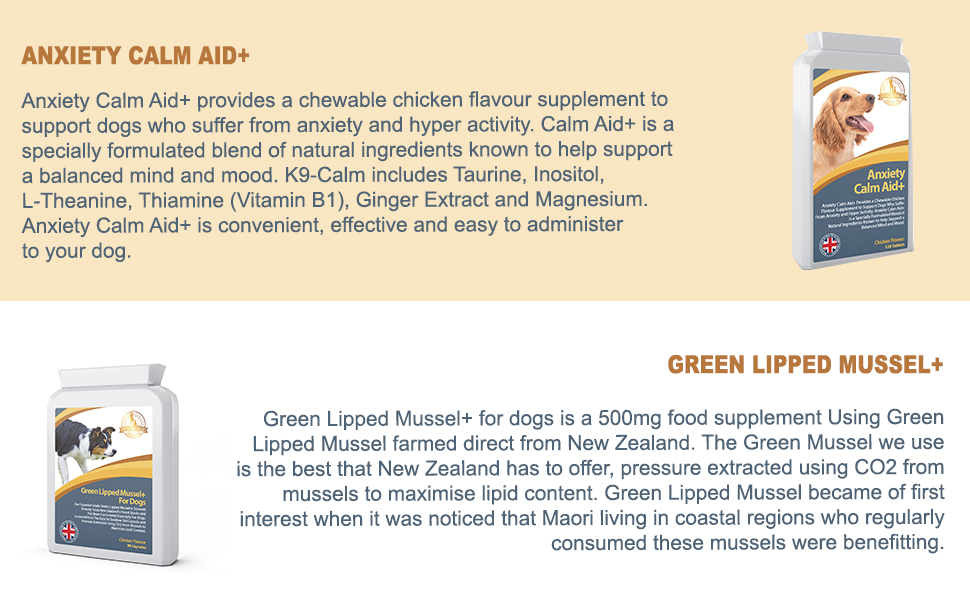
The gentle scratch behind the ears, the enthusiastic tail wags, the unwavering loyalty – our canine companions give us so much. But are we giving them everything they need, especially when it comes to their nutritional well-being? A growing body of research points to the crucial role of omega-3 fatty acids in maintaining optimal canine health, sparking a surge in the popularity of omega-3 supplements for dogs. Yet, navigating the crowded market of fish oils, algal oils, and other omega-3 sources can be overwhelming. Selecting the right supplement, one that is both effective and safe for your furry friend, requires careful consideration and a discerning eye.
This article delves into the world of canine omega-3 supplementation, providing a comprehensive guide to help dog owners make informed decisions. We will examine the different types of omega-3 fatty acids, the health benefits they offer, and the factors to consider when choosing a supplement. Furthermore, we will explore the potential risks associated with supplementation and provide practical advice for ensuring your dog receives the appropriate dosage.
Understanding Omega-3 Fatty Acids
Omega-3 fatty acids are a group of polyunsaturated fatty acids essential for various bodily functions. The three primary omega-3s are alpha-linolenic acid (ALA), eicosapentaenoic acid (EPA), and docosahexaenoic acid (DHA). While ALA is found primarily in plant-based sources, EPA and DHA are abundant in marine sources like fish and algae.
Dogs, unlike humans, are not very efficient at converting ALA into EPA and DHA. Therefore, direct supplementation with EPA and DHA is generally considered more effective for achieving optimal omega-3 levels in dogs.
Health Benefits of Omega-3s for Dogs
The benefits of omega-3s for dogs are wide-ranging and supported by scientific research. EPA and DHA play a vital role in maintaining a healthy inflammatory response, crucial for managing conditions like arthritis and allergies. Studies have shown that omega-3 supplementation can reduce joint pain and stiffness in dogs with osteoarthritis.
Furthermore, omega-3s are essential for brain health and cognitive function. DHA is a major structural component of the brain and retina, supporting learning, memory, and vision. Supplementation may benefit senior dogs experiencing cognitive decline, often referred to as Canine Cognitive Dysfunction (CCD).
Omega-3s also contribute to healthy skin and coat, reducing dryness, itching, and excessive shedding. They can help manage allergic skin conditions and promote a shiny, healthy coat. Finally, omega-3s support cardiovascular health by helping to maintain healthy triglyceride levels and blood pressure.
Choosing the Right Omega-3 Supplement
Selecting the appropriate omega-3 supplement for your dog requires careful evaluation of several factors. Consider the source of the omega-3s, prioritizing EPA and DHA over ALA. Fish oil is a common and readily available source, but it is important to choose a reputable brand that tests for heavy metals and other contaminants.
Algal oil is a plant-based alternative to fish oil, derived from algae that produce EPA and DHA. It's a good choice for dogs with fish allergies or sensitivities, and it's considered a more sustainable option. Krill oil, another marine source, contains EPA and DHA bound to phospholipids, which may improve absorption.
Pay attention to the concentration of EPA and DHA per serving. The dosage should be determined based on your dog's weight and the condition you are trying to manage. Consult with your veterinarian to determine the appropriate dosage for your individual dog.
Supplement Forms and Quality
Omega-3 supplements are available in various forms, including liquid oils, capsules, and chews. Liquid oils can be easily added to your dog's food, while capsules offer a convenient and mess-free option. Chews can be a palatable option for picky eaters, but be sure to check the ingredients list for added sugars or artificial flavors.
Look for supplements that have been third-party tested for purity and potency. Organizations like the National Animal Supplement Council (NASC) offer certification programs for animal supplements. Choosing a certified product provides assurance that the supplement meets quality standards and contains the ingredients listed on the label.
Potential Risks and Side Effects
While generally safe, omega-3 supplementation can cause some side effects in dogs. The most common side effect is gastrointestinal upset, such as diarrhea or vomiting. Starting with a low dose and gradually increasing it can help minimize these effects.
High doses of omega-3s can interfere with blood clotting, so caution is advised for dogs with bleeding disorders or those undergoing surgery. It is always best to consult with your veterinarian before starting any new supplement regimen.
Dosage and Administration
The appropriate dosage of omega-3s for dogs depends on factors such as weight, age, and health condition. As a general guideline, aim for a combined EPA and DHA dosage of 20-55 mg per pound of body weight daily. For therapeutic purposes, such as managing arthritis, a higher dose may be recommended by your veterinarian.
Administer the supplement with food to improve absorption and reduce the risk of gastrointestinal upset. Be consistent with supplementation to allow sufficient time for the omega-3s to exert their beneficial effects. It may take several weeks or months to see noticeable improvements.
The Future of Canine Omega-3 Research
Research on the benefits of omega-3s for dogs is ongoing. Emerging studies are exploring the potential role of omega-3s in managing various other conditions, including kidney disease, heart disease, and even cancer. As our understanding of the benefits of EPA and DHA expands, we can expect to see even more sophisticated and targeted omega-3 supplements developed for our canine companions.
Furthermore, there is growing interest in identifying sustainable and ethical sources of omega-3s. As demand for these essential nutrients continues to rise, it is crucial to prioritize environmentally friendly options that minimize the impact on marine ecosystems.
Conclusion
Omega-3 supplementation can be a valuable tool for promoting overall health and well-being in dogs. By understanding the different types of omega-3s, the benefits they offer, and the factors to consider when choosing a supplement, dog owners can make informed decisions that support their furry friend's optimal health. Always consult with your veterinarian before starting any new supplement regimen to ensure it is safe and appropriate for your individual dog.
